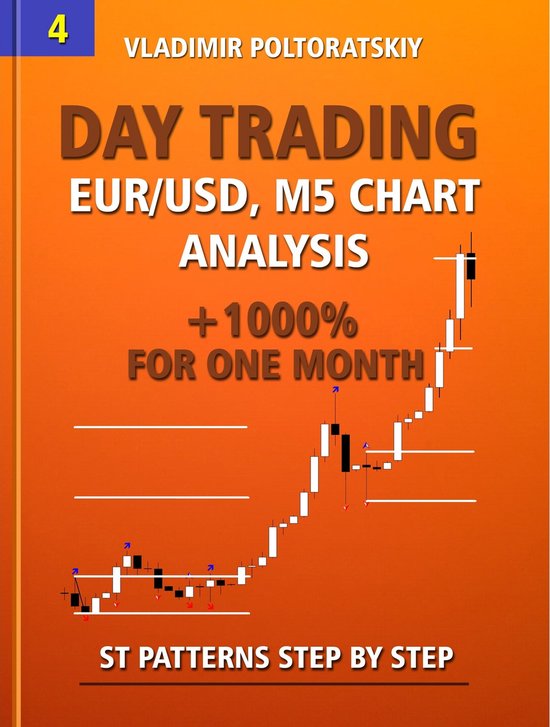
Leveraging your portfolio to increase leverage can be a great idea. However, there are significant risks. Leverage in futures trading is an important aspect. However, you should be aware of the potential risk and its effect on your portfolio. Only trade with the amount you have available, and don't trade with more risk capital than you can manage. It is also wise to diversify your portfolio, and spread your investments across various assets and contracts.
Futures can be traded on a variety of commodities. The price of these commodities varies depending on how much is available and how much is being demanded. A commodity that is in high demand will likely trade higher in future trading sessions. However, a high supply of a commodity could mean it will trade lower in coming months. Futures contracts provide a way to hedge the risk of commodity price fluctuation.

Futures contracts may be traded on a variety assets, such as metals and energy. These contracts typically have specific features and are standard contracts. These include an expiry day, a margin, or a standardized underpinning asset. There are four types of futures contracts: commodity, stock, currency pair, and index. A futures contract is a binding commitment to purchase a specified quantity of an asset on a certain date at a specific price. A futures contract, which is a derivative from a physical product and carries high leverage, can be used to purchase a specified quantity of an asset at a specific price. This leverage increases the amount of money that you can make, or lose. Futures contracts can also be traded for fractions of the asset's value.
There are two types: hedgers, and speculators. Hedgers are typically businesses while speculators trade commodities. Hedgers attempt to lock in favorable future trading price levels in the present, while speculators seek to make money off of changes in the price of a futures contract.
The market can be exploited by the speculator using a variety techniques. He might use leverage to increase his gains or spreads, which are spreads between investments in multiple contracts with opposing positions. Calendar spreads allow him to simultaneously purchase and sell two contracts. This strategy is similar in concept to a stoporder, and can help to lower volatility in your futures positions.

It is not easy to buy and sell futures. First, a trader must decide how much to place in their futures account. This depends on the account size as well as the amount available to fund the account. The margin you are willing and able to risk will also affect the price of the contract. In other words, you will need to put up a certain percentage of the value of the futures contract.
FAQ
What role does the Securities and Exchange Commission play?
Securities exchanges, broker-dealers and investment companies are all regulated by the SEC. It enforces federal securities regulations.
What are the advantages of investing through a mutual fund?
-
Low cost – buying shares directly from companies is costly. Buying shares through a mutual fund is cheaper.
-
Diversification – Most mutual funds are made up of a number of securities. One type of security will lose value while others will increase in value.
-
Management by professionals - professional managers ensure that the fund is only investing in securities that meet its objectives.
-
Liquidity – mutual funds provide instant access to cash. You can withdraw money whenever you like.
-
Tax efficiency – mutual funds are tax efficient. As a result, you don't have to worry about capital gains or losses until you sell your shares.
-
Buy and sell of shares are free from transaction costs.
-
Mutual funds are easy to use. All you need is a bank account and some money.
-
Flexibility - You can modify your holdings as many times as you wish without paying additional fees.
-
Access to information - you can check out what is happening inside the fund and how well it performs.
-
Investment advice – you can ask questions to the fund manager and get their answers.
-
Security - you know exactly what kind of security you are holding.
-
Control - You can have full control over the investment decisions made by the fund.
-
Portfolio tracking – You can track the performance and evolution of your portfolio over time.
-
Easy withdrawal - You can withdraw money from the fund quickly.
Investing through mutual funds has its disadvantages
-
Limited selection - A mutual fund may not offer every investment opportunity.
-
High expense ratio - Brokerage charges, administrative fees and operating expenses are some of the costs associated with owning shares in a mutual fund. These expenses can reduce your return.
-
Insufficient liquidity - Many mutual funds don't accept deposits. They must be bought using cash. This limits the amount of money you can invest.
-
Poor customer service - There is no single point where customers can complain about mutual funds. Instead, contact the broker, administrator, or salesperson of the mutual fund.
-
High risk - You could lose everything if the fund fails.
What is a bond and how do you define it?
A bond agreement is an agreement between two or more parties in which money is exchanged for goods and/or services. Also known as a contract, it is also called a bond agreement.
A bond is usually written on paper and signed by both parties. This document includes details like the date, amount due, interest rate, and so on.
When there are risks involved, like a company going bankrupt or a person breaking a promise, the bond is used.
Sometimes bonds can be used with other types loans like mortgages. This means that the borrower must pay back the loan plus any interest payments.
Bonds can also be used to raise funds for large projects such as building roads, bridges and hospitals.
It becomes due once a bond matures. That means the owner of the bond gets paid back the principal sum plus any interest.
Lenders can lose their money if they fail to pay back a bond.
What are some advantages of owning stocks?
Stocks can be more volatile than bonds. The value of shares that are bankrupted will plummet dramatically.
However, if a company grows, then the share price will rise.
Companies often issue new stock to raise capital. This allows investors to purchase additional shares in the company.
Companies use debt finance to borrow money. This gives them access to cheap credit, which enables them to grow faster.
If a company makes a great product, people will buy it. As demand increases, so does the price of the stock.
As long as the company continues producing products that people love, the stock price should not fall.
How are Share Prices Set?
Investors decide the share price. They are looking to return their investment. They want to make money with the company. So they purchase shares at a set price. If the share price increases, the investor makes more money. The investor loses money if the share prices fall.
An investor's main goal is to make the most money possible. This is why they invest into companies. They are able to make lots of cash.
What is an REIT?
A real-estate investment trust (REIT), a company that owns income-producing assets such as shopping centers, office buildings and hotels, industrial parks, and other buildings is called a REIT. These are publicly traded companies that pay dividends instead of corporate taxes to shareholders.
They are similar companies, but they own only property and do not manufacture goods.
Statistics
- Individuals with very limited financial experience are either terrified by horror stories of average investors losing 50% of their portfolio value or are beguiled by "hot tips" that bear the promise of huge rewards but seldom pay off. (investopedia.com)
- US resident who opens a new IBKR Pro individual or joint account receives a 0.25% rate reduction on margin loans. (nerdwallet.com)
- "If all of your money's in one stock, you could potentially lose 50% of it overnight," Moore says. (nerdwallet.com)
- Our focus on Main Street investors reflects the fact that American households own $38 trillion worth of equities, more than 59 percent of the U.S. equity market either directly or indirectly through mutual funds, retirement accounts, and other investments. (sec.gov)
External Links
How To
How to Invest Online in Stock Market
The stock market is one way you can make money investing in stocks. You can do this in many ways, including through mutual funds, ETFs, hedge funds and exchange-traded funds (ETFs). Your risk tolerance, financial goals and knowledge of the markets will determine which investment strategy is best.
Understanding the market is key to success in the stock market. This includes understanding the different types of investments available, the risks associated with them, and the potential rewards. Once you've decided what you want out your investment portfolio, you can begin looking at which type would be most effective for you.
There are three types of investments available: equity, fixed-income, and options. Equity refers to ownership shares in companies. Fixed income refers to debt instruments such as bonds and treasury notes. Alternatives include commodities, currencies and real estate. Venture capital is also available. Each category has its pros and disadvantages, so it is up to you which one is best for you.
There are two main strategies that you can use once you have decided what type of investment you want. One strategy is "buy & hold". You purchase some of the security, but you don’t sell it until you die. The second strategy is "diversification". Diversification means buying securities from different classes. You could diversify by buying 10% each of Apple and Microsoft or General Motors. The best way to get exposure to all sectors of an economy is by purchasing multiple investments. You can protect yourself against losses in one sector by still owning something in the other sector.
Risk management is another important factor in choosing an investment. Risk management will allow you to manage volatility in the portfolio. A low-risk fund would be the best option for you if you only want to take on a 1 percent risk. If you are willing and able to accept a 5%-risk, you can choose a more risky fund.
Learn how to manage money to be a successful investor. Managing your money means having a plan for where you want to go financially in the future. A good plan should include your short-term, medium and long-term goals. Retirement planning is also included. Then you need to stick to that plan! Don't get distracted with market fluctuations. Keep to your plan and you will see your wealth grow.